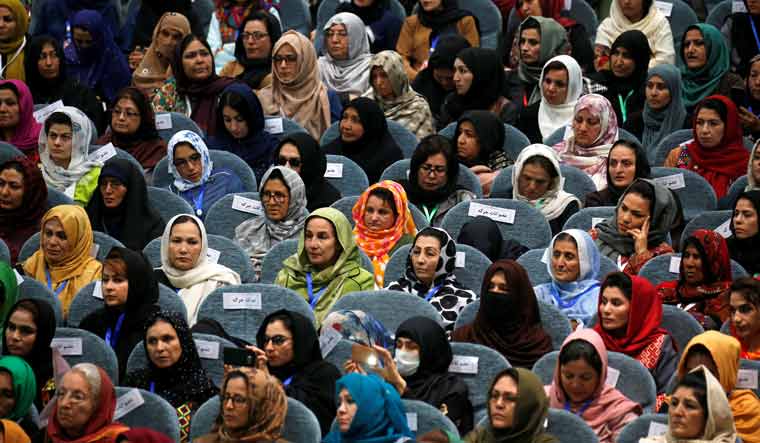Inside Ms Sadat's Beauty Salon in Afghanistan's capital, Sultana Karimi leans intently over a customer, meticulously shaping her eyebrows. Make-up and hair styling is the 24-year-old's passion, and she discovered it, along with a newfound confidence, here in the salon.
She and the other young women working or apprenticing in the salon never experienced the rule of the Taliban over Afghanistan.
But they all worry that their dreams will come to an end if the hard-line militants regain any power, even if peacefully as part of a new government.
With the return of Taliban, society will be transformed and ruined, Karimi said. Women will be sent into hiding, they'll be forced to wear the burqa to go out of their homes.
She wore a bright yellow blouse that draped off her shoulders as she worked, a style that's a bit daring even in the all-women space of the salon. It would have been totally out of the question under the Taliban, who ruled until the 2001 US-led invasion.
In fact, the Taliban banned beauty salons in general, part of a notoriously harsh ideology that often hit women and girls the hardest, including forbidding them education and the right to work or even to travel outside their home unaccompanied by a male relative.
With US troops committed to leaving Afghanistan completely by Sept. 11, women are closely watching the stalemated peace negotiations between the Taliban and the Afghan government over the post-withdrawal future, said Mahbouba Seraj, a women's rights activist.
The US is pressing for a power-sharing government that includes the Taliban. Seraj said women want written guarantees from the Taliban that they won't reverse the gains made by women in the past 20 years, and they want the international community to hold the insurgent movement to its commitments.
I am not frustrated that the Americans are leaving ... the time was coming that the Americans would go home, said Seraj, the executive director of Afghan Women's Skill Development.
But she had a message for the US and NATO: We keep yelling and screaming and saying, for God's sake, at least do something with the Taliban, take some kind of assurance from them ... a mechanism to be put in place that guarantees women's rights.
Last week the Taliban in a statement outlined the type of government they seek.
It promised that women can serve their society in the education, business, health and social fields while maintaining the "correct" Islamic hijab. It promised girls would have the right to choose their own husbands, considered deeply unacceptable in many traditional and tribal homes in Afghanistan, where husbands are chosen by their parents.
But the statement offered few details, nor did it guarantee women could participate in politics or have freedom to move unaccompanied by a male relative.
Many worry that the vague terms the Taliban use in their promises, like "correct hijab" or guaranteeing rights provided under Islamic law, give them wide margin to impose hard-line interpretations.
At the beauty salon, the owner Ms. Sadat told how she was born in Iran to refugee parents. She was forbidden to own a business there, so she returned to a homeland she'd never seen to start her salon 10 years ago.
She asked not to be identified by her full name, fearing that attention could make her a target. She has become more cautious as violence and random bombings have increased in Kabul the past year an augur of chaos when the Americans fully leave, many fear. She used to drive her own car. Not anymore.





